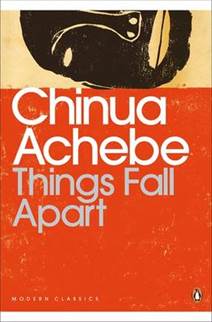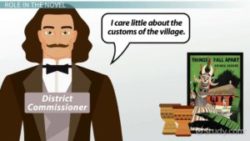Things Fall Apart
Author: Chinua Achebe
Genre: Fiction

Book: Things Fall Apart
What an absolute treat of a book! Good fiction not only entertains us but also stirs something deep within us, making us emotional and introspective at the same time. The most widely read book on African literature (10 m copies and translated into 45 languages), Things Fall Apart tells a story which is fiction, but with very real characters in a very real era.
We are all prisoners of our times. Achebe was active when the ‘Scramble for Africa’ was at its peak, with all European powers wanting a piece for themselves. He grew up in Nigeria in a traditional clan where his father converted to Christianity, but all his uncles continued to be ‘heathen’. So, while he sang hymns and read the Bible every day, he also enjoyed the pagan festivals of rice and stew. Growing up in such a crossroad of culture, it is no wonder that Achebe’s works show tolerance and objectivity.

Things Fall Apart’s proud protagonist is Okonkwo, who lives in the hinterland of the Igbo nation and is “well known throughout the nine villages… as one of the fiercest”. Achebe’s characters do not apologize for being complex and Okonkwo “whenever he was angry and could not get his words out quickly enough, he would use his fists.” He is as proud of his hard work (cultivating yams in a wasteland in the worst of seasons, through sheer tenacity) as he is of his valor (five heads from five men he killed in war). “On great occasions such as the funeral of a village celebrity, he drank his palm-wine from his first human head”.
We also see how we often live the unlived lives of our parents. Okonkwo’s father was useless and a joke in the village. “So Okonkwo was ruled by one passion – to hate everything that his father had loved. One of those things was gentleness and another was idleness.”

The story takes us through life in a simple African village with all its virtues and sins. The clan lives like a large family, respects elders, idolizes mother earth and celebrates achievement. It also is a victim of superstitions (throwing twin babies in the jungle), cruel interclan wars (killing a young boy from another village as retribution of crime committed by someone in that village) and low hierarchy for women (common for husbands to beat their wives, except during the Week of Peace!). The modern reader may be disgusted by these dogmas, but courtesy Achebe’s human writing, we also understand how the many hardships faced by these villages would have led to these hard customs.
The English arrive carefully choosing religion as their weapon of conquest, supported by their superior science and education. “Mr Brown learnt a good deal about the religion of the clan and he came to the conclusion that a frontal attack on it would not succeed. And so he built a school and a little hospital in Umuofia.”
The “white man” was able to question the many superstitions (e.g. setting up church in the hitherto evil forest), and cure many ‘incurable’ illnesses with his miracle medicines. The trick was to showcase all these not as triumph of science but as the power of my God vs. yours.
“The white man is very clever. He came quietly and peaceably with his religion. We were amused at his foolishness and allowed him to stay. Now he has won our brothers and our clan can no longer act like one.”
And just behind the missionary was the District Administration, with its own biases, corrupted messengers and willingness to use the gun to ensure compliance. The English impose their ways on the native society, convinced that their ways are right.

While many convert, Okonkwo is unable to adapt, tries to fight, is humiliated and… [Well, won’t be fair to reveal the plot!]
Some of the sentences will stay with me forever as not just masterful literature but a mirror to the world we live in: “the anger on his face was gone and in its place a sort of smile hovered, more terrible and more sinister than the anger.”; “a proud heart can survive a general failure… it is more difficult and more bitter when a man fails alone.”; “Okonkwo trembled with the desire to conquer and subdue. It was like the desire for woman.”
Why should you read the book: Things Fall Apart does not just entertain, it also educates, it also inspires. In the struggle of the “Dark Continent” meeting the developed White, Achebe tells us what happens when cultures clash. Achebe neither judges nor preaches, but calmly tells the story bringing out the irony for us to fathom. Who is right and who is wrong is too naive an outlook, generally both sides are right and wrong. And thinking that our way is superior without fully understanding the other side, only results in tragedy.
It is an urgent lesson for today’s world where, across the globe, countries seem to be competing on who can be more narrow minded and jingoistic.
Goodreads Link: Things Fall Apart (The African Trilogy, #1) by Chinua Achebe | Goodreads

 This information will never be shared with third party
This information will never be shared with third party
Post A Comment
Want to join the discussion?Feel free to contribute!